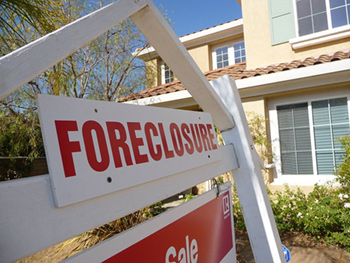
Every once in a while, stories pop up about people who abuse the system, and one of the most extreme cases we have ever heard hit the news last month. Reported in major publications like Fox News and the New York Post, a man in New York has avoided eviction for more than 20 years by filing multiple bankruptcy cases.
According to the article at the New York Post, the man bought a Long Island home for $290,000 in 1998 and made his first mortgage payment to his lender, Washington Mutual – and that’s the only payment he ever made. He has claimed bankruptcy seven times and filed four lawsuits over the years, all focused on letting him stay in the home.
Since he moved in 23 years ago, two different banks and a real estate company have owned the home since it was forclosed upon in 2000, but the man still lives there.
How is this even possible?
The U.S. Bankruptcy Code includes “automatic stay” rules, meant to give debtors a temporary reprieve from any debt collection efforts, harassment from collectors, and any foreclosure efforts.
The story gets even more incredible. At least three other individuals have also filed for bankruptcy in New York courts, using the same address. The claims were eventually dismissed, but delays allowed the people to stay in the house for a longer period of time.
Jordan Katz, an attorney representing the current property owner Diamond Ridge Partners, said “It’s really a group of people that are more than willing to use the courts and abuse the courts to whatever extent they need to extend their illegal occupancy.”
Considering that the house was purchased as a $232,000 adjustable rate mortgage with an initial 7.375 percent interest rate back in 1998, the man has likely saved around $440,000 by not paying any bills in over 20 years of occupancy.
By the spring of 2000, Washington Mutual had foreclosed on the home, and the owner was “forever barred” from any claim to the property – but he never left. By the beginning of 2001, he filed his first bankruptcy claim. He filed another in November of 2001, then filed twice in 2002, and again in 2003.
When the bankruptcy filings were unsuccessful, he went to the state court to seek relief. In 2004, he transferred the deed to his friend, even though he had no legal right to do so. His friend filed for bankruptcy in 2005, once again stopping foreclosure proceedings.
Washington Mutual went under by 2008, and its assets were absorbed by JP Morgan Chase. The new bank could not get the man out of the property either. He filed at least three lawsuits against JP Morgan Chase, and both sides are locked in an ongoing legal battle in New York federal court.
The man claims that Chase committed “blatant fraud” in 2010 by trying to evict him when it didn’t have proper title to the home – even though he illegally transferred the title to his friend.
In the spring of 2018, Diamond Ridge acquired the property from Chase and offered the man $20,000 to vacate the home. Instead of accepting the offer, he filed for bankruptcy again in 2019, and yet again in 2020. A third occupant of the home filed for bankruptcy four times in 2019, and a fourth occupant also filed for bankruptcy in 2019.
The pandemic has given the occupants even more time, since COVID-related restrictions have caused a backlog in New York courts.
Bankruptcy is not a weapon
It’s important to understand that bankruptcy is a tool, not a weapon or scam to stay in a home mortgage-free. The “automatic stay” rules are meant to be a temporary pause in collection and eviction efforts, not a complete (or permanent) stop.
When you file for bankruptcy, your mortgage does not disappear, and you do not get out of paying for your home. You need to continue to make mortgage payments if you want to stay in your home. In many cases, you might be able to renegotiate the terms of your loan, lowering your monthly payments.
Rubin & Associates can help with your debt
If you’re currently struggling with out-of-control debt or trying to avoid foreclosure or repossession, our team is here to help! Call us at 214-760-7777 or contact us through our website to set up a free, no obligation consultation. We will listen to all the details of your situation and offer you experienced advice on the best path forward. Every year, we help hundreds of Dallas area residents get a fresh start through bankruptcy. Don’t wait to call if you’re struggling, we are here to help you find the best path forward.
